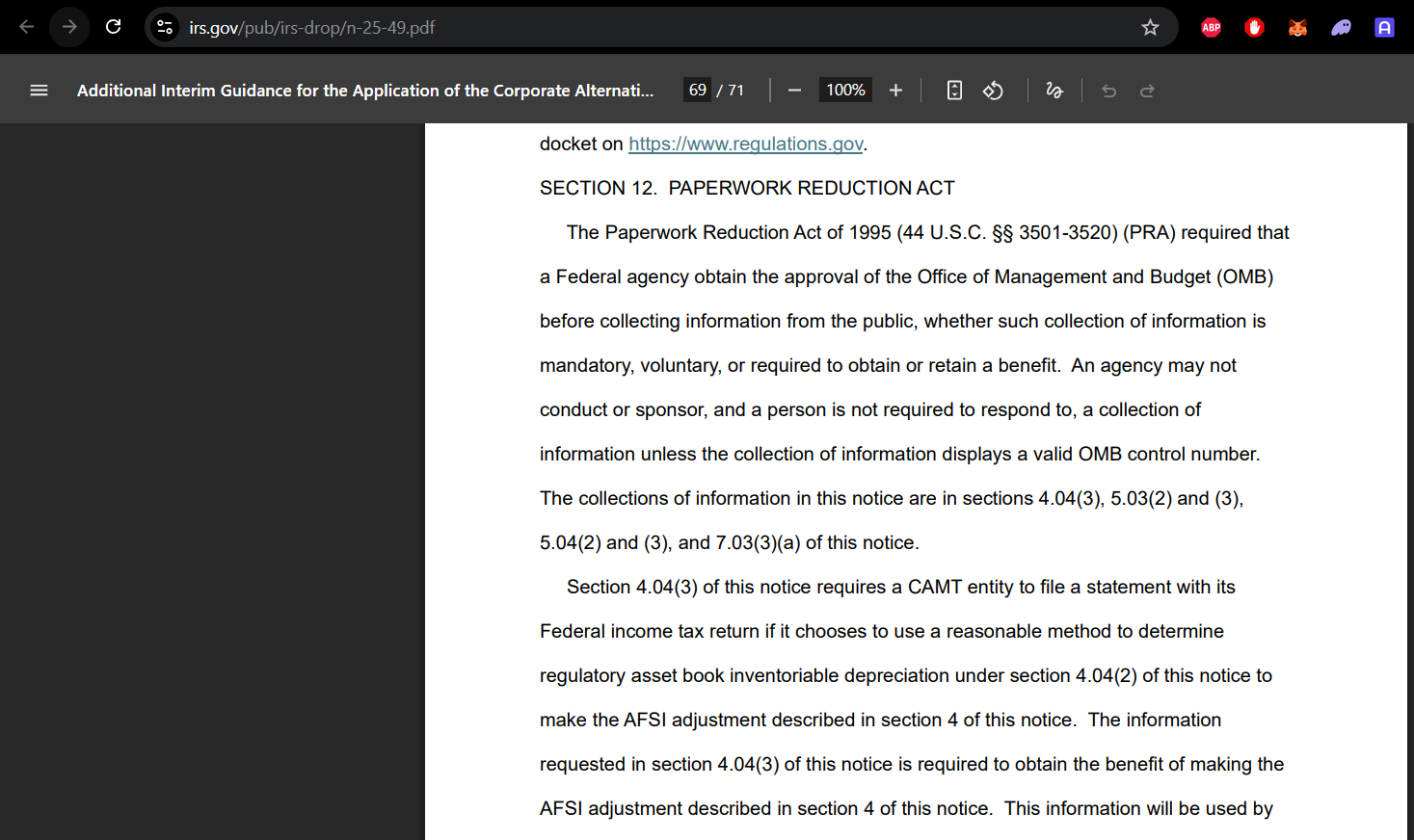Confusion has arisen due to the CAMT (Corporate Minimum Tax) rule for cryptocurrency companies, especially large companies. In cryptocurrencies Volatility is extremely high, and the new tax rule that took effect in 2022 required these companies to pay 15% each quarter. However, this is not something that suits crypto because unrealized gains can quickly turn into unrealized losses.
CAMT home Cryptocurrency Companies
In 2022, the Corporate Minimum Tax definition came into force with the Inflation Reduction law. This is something Türkiye is also working on these days. The aim is clear, to prevent companies from paying much less tax due to legal tax incentives and various advantages, even though their accounting earnings are high.
The basic logic focuses on taxable income. In other words, ways to cut taxes to be paid through investments and other items are blocked. Companies with average Adjusted Financial Statement Income (AFSI) over $1 billion must pay a 15% minimum tax on AFSI. In other words, if there is a sale or a profit, 15% of the income here must be paid as tax.
Cryptocurrency Companies and Tax
CAMT some cryptocurrency It was catching companies due to their balance sheet sizes. Among these public companies, there are giants such as Coinbase, Microstrategy, Riot Platforms, Marathon, Circle, Paxos. They have unrealized gains, that is, the gains they get from the cryptocurrencies in hand. However, they also live with unrealized losses for a significant part of the 4-year cycle. MSTR suffered losses many times as the price of BTC fell below its average cost.
Now it is not possible for these companies to pay 15% tax because BTC, ETH or others rise every quarter. The US Internal Revenue Service has also made things easier for these cryptocurrency companies, which have to pay high taxes without obtaining cash.
Like this;
Double taxation of multi-layered crypto companies such as Coinbase with their different subsidiaries has been prevented.
Unrealized gains were prevented from being subject to flat tax.
Unrealized gains on assets such as crypto tokens and derivative contracts were excluded from CAMT. Cryptocurrencies were included in the latest guidance as an additional scope, and unrealized gains arising from the rise will not incur taxes.

In summary, with the IRS’s 2025-46 and 2025-49 guidelines, cryptocurrency companies have been saved from a significant unfair tax problem.








